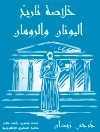Video games are temporal artifacts: They change with time as players interact with them in accordance with rules. In this study, Federico Alvarez Igarzábal investigates the formal aspects of video games that determine how these changes are produced and sequenced. Theories of time perception drawn from the cognitive sciences lay the groundwork for an in-depth analysis of these features, making for a comprehensive account of time in this novel medium. This book-length study dedicated to time perception and video games is an indispensable resource for game scholars and game developers alike. Its reader-friendly style makes it readily accessible to the interested layperson.
Over de auteur
Federico Alvarez Igarzábal is a postdoctoral researcher at the Institute for Frontier Areas of Psychology and Mental Health in Freiburg, Germany, working in the EU-funded project VIRTUALTIMES. His research focuses primarily on the temporality of video games from a formalist and cognitive-scientific perspective. He obtained his Ph D at the Institute of Media Culture and Theatre of the University of Cologne and the Cologne Game Lab of the TH Köln in 2018 with his thesis »Time and Space in Video Games«.












